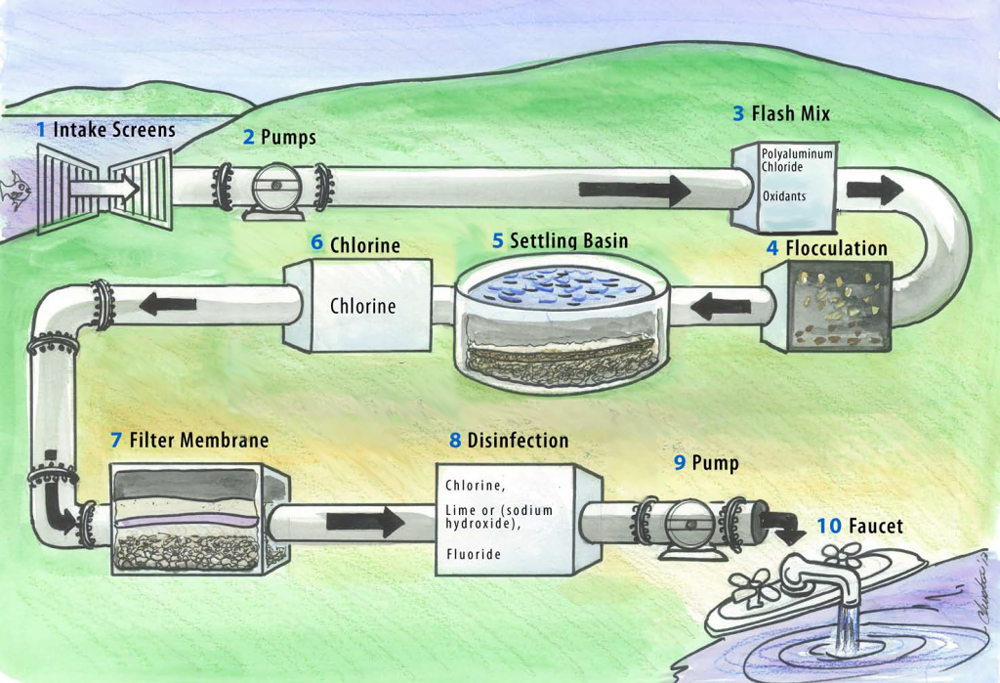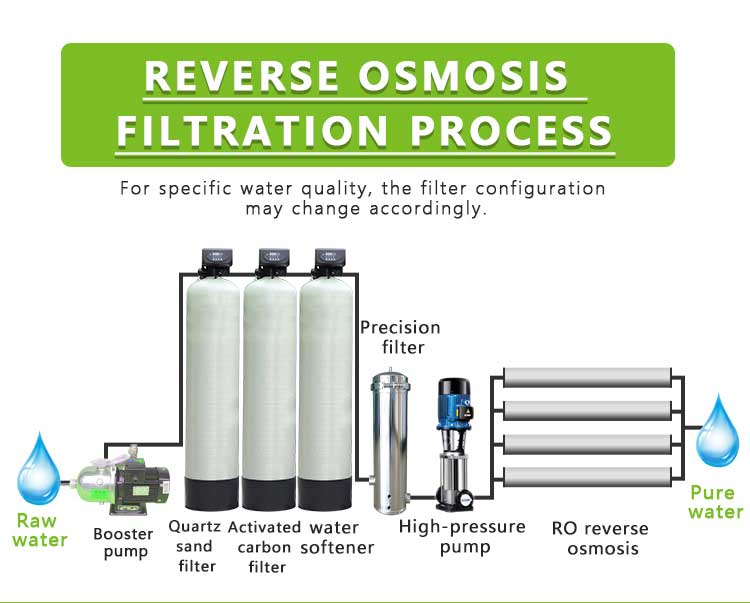Water Technology Startups: Key Differentiator for Corporate Sustainability
Discovering Water Technology Startups: Just How They Revolutionize Sustainable Solutions
Water Technology startups are becoming important gamers in the pursuit for lasting options to worldwide water concerns. These business utilize cutting-edge technologies to boost water effectiveness and monitoring. Their contributions attend to pressing challenges such as deficiency and contamination. Regardless of their possibility, they face different challenges that might impact their success. Understanding these characteristics loses light on the future of water sustainability and the function these startups might play in forming it.
The Value of Water Technology in Today's World
As global water scarcity magnifies, the relevance of water Technology comes to be progressively apparent. Water Technology plays an essential function in dealing with the challenges positioned by raising and diminishing freshwater sources demand. It incorporates a broad series of developments, consisting of innovative filtration systems, wastewater treatment modern technologies, and smart irrigation solutions. These advancements not only enhance the effectiveness of water use yet also promote lasting practices throughout numerous markets, including farming, industry, and metropolitan growth.
The value of water Technology extends past resource monitoring. It cultivates resilience versus climate modification impacts, such as floods and droughts, by offering flexible solutions for water preservation and administration. In addition, it supports public health and wellness by ensuring access to safe and clean alcohol consumption water. As the world deals with expanding water-related difficulties, the integration of innovative water innovations is essential for fostering sustainable advancement and safeguarding water availability for future generations.
Ingenious Solutions From Water Technology Startups
While typical approaches to water administration have actually offered their function, a brand-new wave of water technology start-ups is revolutionizing the market with ingenious options (Water Technology Startups). These business utilize cutting-edge innovations to deal with pushing water problems, such as deficiency, contamination, and inefficient distribution. Many startups use expert system and artificial intelligence to maximize water use and anticipate demand, leading to more sustainable techniques
Furthermore, several firms concentrate on creating innovative filtration systems that remove toxins and make water risk-free for usage. Others check out decentralized water treatment modern technologies, enabling areas to manage their water resources better. Some start-ups are pioneering clever watering options that minimize water waste in farming, promoting environmental preservation.
Instance Studies: Effective Water Technology Startups
Various water Technology start-ups have actually become leaders in resolving global water difficulties through ingenious methods. One remarkable example is Xylem, which concentrates on water analytics and clever infrastructure to enhance water usage and reduce waste. Their services have been executed in different municipalities, showing substantial improvements in water management effectiveness.
An additional effective start-up, No Mass Water, has established solar-powered hydropanels that draw out water vapor from the air, giving lasting alcohol consumption water in deserts. Water Technology Startups. This Technology has actually been released in numerous countries, guaranteeing neighborhoods have accessibility to clean water
Last But Not Least, AquaVenture Holdings runs a varied profile of water-as-a-service solutions, addressing water scarcity via desalination and wastewater therapy. Their jobs have actually verified vital in regions encountering extreme water scarcities, showcasing the potential of innovative water modern technologies to produce enduring, favorable influences. These study highlight the transformative capacity of startups in the water Technology sector.
The Role of Smart Technology in Water Monitoring
Smart Technology plays an important role in contemporary water administration by leveraging IoT applications to maximize resource use. Information analytics enhances performance by supplying actionable understandings, while remote surveillance options make it possible for real-time oversight of water supply. Together, these developments transform just how water is handled, advertising sustainability and operational performance.
IoT Applications in Water
As water shortage and monitoring difficulties increase globally, the assimilation of Web of Things (IoT) applications has actually become a crucial service in optimizing water resources. IoT Technology promotes real-time monitoring and evaluation of water systems, making it possible for a lot more efficient use and administration. Sensors released in different water frameworks can track high quality, circulation rates, and leak, supplying important information to stakeholders. This information equips energies and consumers to make educated choices, decreasing waste and boosting preservation initiatives. Additionally, clever irrigation systems utilize IoT to optimize water delivery for farming, making sure that plants obtain the ideal quantity of water at the correct time. On the whole, IoT applications are transforming conventional water monitoring techniques, fostering sustainability and durability in water source systems.
Data Analytics for Effectiveness
Using data analytics is crucial for enhancing efficiency in water management. Water Technology startups are progressively utilizing advanced analytics to optimize resource allowance and reduce waste. By examining information from different sources, these start-ups can recognize patterns and trends that inform better decision-making. For instance, anticipating analytics can forecast water need, permitting utilities to adjust supply as necessary, consequently decreasing excess and lacks. In addition, real-time information handling allows the immediate discovery of leakages and ineffectiveness within distribution systems, significantly minimizing functional costs. Furthermore, data-driven insights encourage stakeholders to implement targeted preservation approaches, fostering lasting practices. Essentially, integrating data analytics right into water administration not only simplifies procedures however also advertises long-term sustainability in water source usage.
Remote Surveillance Solutions
While standard water management systems typically battle with ineffectiveness, remote tracking options are changing exactly how water sources are managed. These cutting-edge innovations make it possible for real-time information collection and analysis, permitting stakeholders to keep track of water top quality, flow prices, and usage patterns from afar. Using sensing units and IoT tools, remote monitoring gives immediate understandings that facilitate positive decision-making. This change not only boosts operational performance yet also promotes sustainability by lowering water waste and optimizing resource appropriation. Furthermore, remote tracking systems can identify potential issues prior to they escalate, thereby decreasing the risk of contamination or framework failure. As water Technology start-ups proceed to establish these remedies, the industry is positioned for substantial innovations in lasting water administration methods.
Obstacles Facing Water Technology Startups
Water Technology startups experience substantial challenges that can prevent their development and success. Key problems include protecting ample financing, steering through complex regulatory settings, and completing in a jampacked industry. These challenges need tactical planning and technology to get over.
Financing and Financial Investment Obstacles
Although advancement in water Technology holds enormous capacity for attending to worldwide difficulties, startups in this industry commonly encounter considerable funding and financial investment obstacles. Lots of financiers stay cautious, viewing the water market as high-risk due to its intricate governing landscape and long growth timelines. In addition, startups often battle to show immediate productivity, which can prevent potential backers. Typical endeavor capital might ignore water innovation, preferring markets with quicker returns, such as tech or durable goods. Additionally, securing grants and government financing can be lengthy and competitive, additional complicating economic security. Water Technology Startups. Because of this, numerous ingenious water Technology startups discover themselves in a ragged edge, needing imaginative financing techniques to browse these monetary obstacles and achieve their goals
Governing Compliance Issues
Steering regulative conformity is a considerable difficulty for startups in the water Technology industry, as they must come to grips with a myriad of neighborhood, nationwide, and worldwide laws. These regulations usually encompass water top quality criteria, ecological protection laws, and safety procedures, which can vary commonly throughout territories. Start-ups might locate it difficult to navigate this complex landscape, particularly when scaling operations or entering new markets. The expenses connected with compliance can be considerable, diverting sources away from advancement and item growth. In addition, hold-ups in getting necessary licenses or qualifications can prevent development and market access. A robust understanding of regulatory structures is necessary for these startups to ensure sustainable operations and stay clear of potential lawful effects.
Market Competition Dynamics
As water Technology start-ups arise in an affordable landscape, they face various difficulties that can hinder their growth and innovation. Established Water Technology Startups companies typically dominate the marketplace, leveraging sources and experience to maintain their positions. Startups have problem with limited funding, which restricts research and development capabilities, making it hard to contend on Technology and rates. Furthermore, the rapidly evolving nature of water innovations needs consistent adjustment, further straining start-up sources. Governing hurdles can make complex market entry, as compliance with ecological criteria is critical yet costly. Finally, drawing in knowledgeable skill in a niche area presents an additional obstacle, as larger firms might provide even more enticing work plans. As a result, these factors create a complicated environment for water Technology startups aiming to be successful.

The Future of Water Technology and Sustainability

The future of water Technology will likely focus on incorporating man-made intelligence and data analytics to maximize water circulation and usage patterns. By utilizing real-time data, firms can predict scarcities and take care of resources better. Sustainable practices will become a foundation of the market, urging circular economic situations where water is reused and treated. Ultimately, the ongoing development of water Technology will certainly be important in producing resistant frameworks efficient in satisfying the challenges presented by environment change and populace development while advertising environmental stewardship.
Often Asked Inquiries
What Are the Key Metrics for Examining Water Technology Startups?
Trick metrics for evaluating water Technology startups include market possibility, scalability, customer purchase prices, revenue growth, technology advancement, regulatory compliance, ecological influence, competitive advantage, and group proficiency, all crucial for establishing long-lasting stability and success.
How Can Individuals Assistance Water Technology Innovations?
People can support water Technology advancements by buying start-ups, promoting for plan changes, taking part in area initiatives, sharing understanding regarding lasting techniques, and promoting understanding of water concerns with social networks and neighborhood occasions.
What Prevail Funding Sources for Water Tech Startups?
Common funding resources for water tech startups include financial backing, federal government gives, crowdfunding systems, angel capitalists, and company collaborations. These monetary opportunities help facilitate technology and growth in lasting water management technologies.

Which Industries Advantage Most From Water Technology Advancements?
Industries such as agriculture, energy, production, and community solutions benefit considerably from water Technology innovations. These developments boost water effectiveness, lower expenses, and advertise sustainable practices, eventually contributing to ecological preservation and resource monitoring.
Are There Any Kind Of Regulative Obstacles Certain to Water Technology?
Yes, water Technology encounters regulative challenges, consisting of compliance with environmental criteria, permitting processes, and differing regional policies. These intricacies can hinder technology and reduce the execution of new modern technologies in the water administration industry.
Water Technology startups are emerging as critical players in the quest for sustainable options to international water issues. As global water deficiency escalates, the importance of water Technology becomes increasingly apparent. Others explore decentralized water treatment modern technologies, allowing areas to handle their water resources much more successfully. An additional effective start-up, Zero Mass Water, has developed solar-powered hydropanels that remove water vapor from the air, supplying sustainable alcohol consumption water in arid areas. Their projects have actually proven vital in areas dealing with serious water scarcities, showcasing the possibility of cutting-edge water technologies to create long lasting, positive impacts.